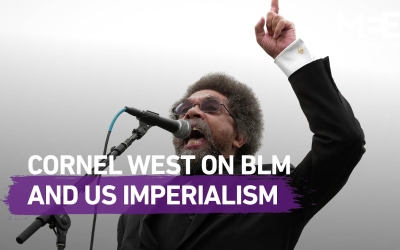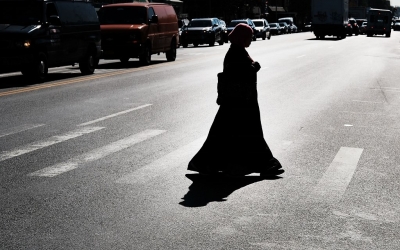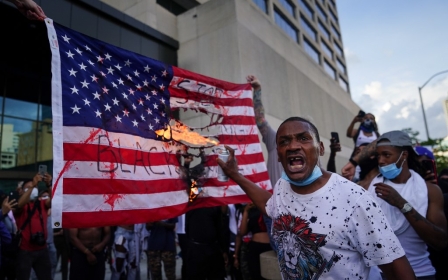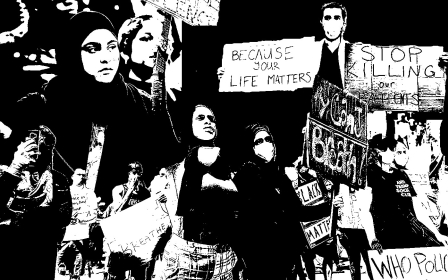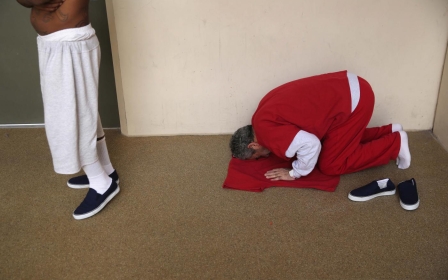Black Lives Matter protester forced to remove hijab on arrest demands justice
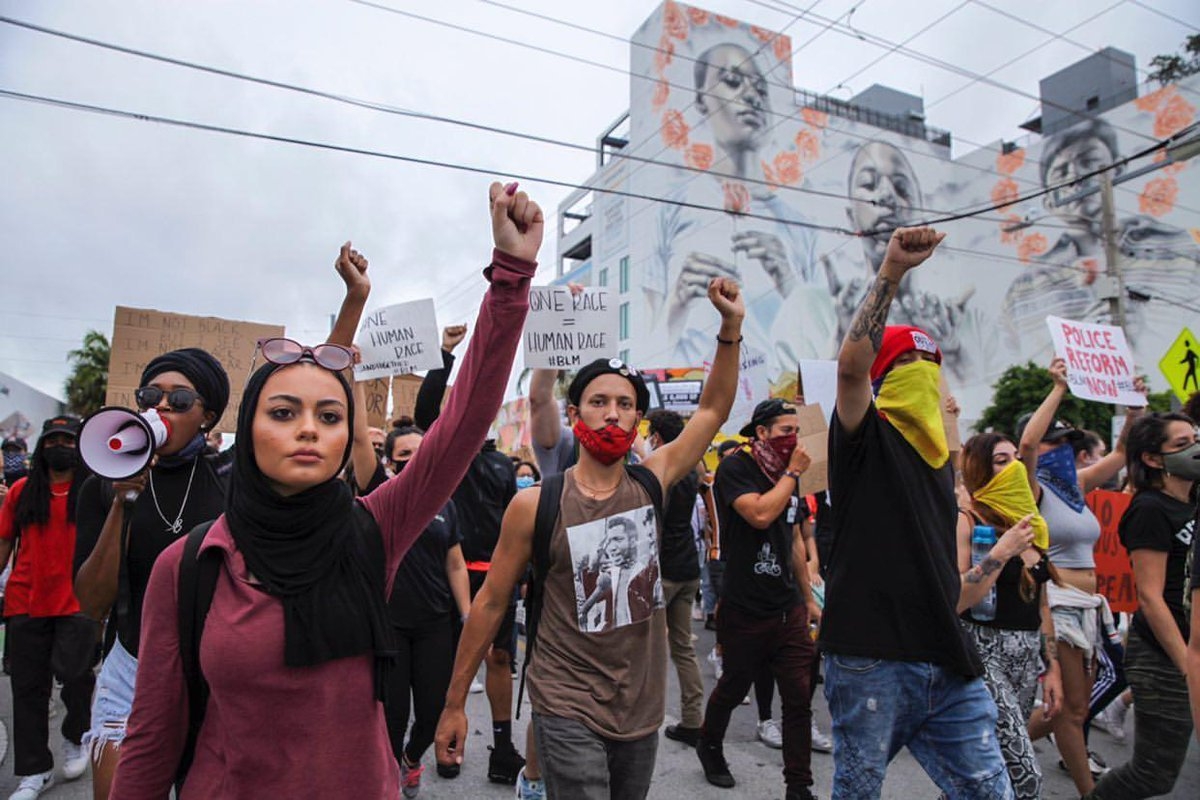
A Muslim American woman who was forced to remove her hijab for a police mugshot says her constitutional rights were breached and is demanding that the officers involved be investigated.
Alaa Massri, 18, was arrested at a Black Lives Matter protest in Miami, Florida, on 10 June after skirmishes broke out between demonstrators and police.
Massri said she was handcuffed and taken to the Miami-Dade County Corrections and Rehabilitation centre, where she was forced have her booking photo taken without her head covering.
She was then left without her hijab for seven hours, while the photos were made available to "countless media" outlets, some of which published her photos online.
In an online petition which has garnered more than 130,000 signatures, Massri demanded all charges against her be dropped, the mugshot taken down and an investigation opened.
New MEE newsletter: Jerusalem Dispatch
Sign up to get the latest insights and analysis on Israel-Palestine, alongside Turkey Unpacked and other MEE newsletters
"We want the police officers who committed this injustice to be publicly investigated and held responsible," the petition launched by Massri reads.
The Miami-Dade Corrections and Rehabilitation Department has said that, as a policy, a religious head covering is taken away during a booking and given back "once it has been searched for contraband and the booking photograph has been taken".
"We are committed to ensuring that individual’s faith-based beliefs and practices are respected and will review this incident to ensure compliance with our policies and this commitment," the department added.
But Omar Saleh, a staff attorney at the Council on American-Islamic Relations (CAIR) in Florida, said that a policy requiring someone to take off their religious head covering for booking photographs violates several laws protecting religious freedoms, adding that if Massri chose to do so, she would have grounds to file a civil case against the department.
While there are narrow exceptions concerning security that would allow the scarf to be taken off in private for a search, what happened to Massri seems to have exceeded the allowed procedures, Saleh told Middle East Eye.
"If the facts are as we hear they are, then we believe that this is a constitutional violation.
"It's not just the First and Fourteenth Amendments, there's also the Religious Land Use and Institutionalized Persons Act that bars government from restricting a woman's ability to practice hijab when they're confined in an institution, and that includes jail," he said.
"It's one thing to remove the hijab in the course of the arrest, pre-booking photo, to clear security and then give the hijab back for the booking photo", but prohibiting Massri from wearing her hijab for hours during detention goes well beyond that scope, he added.
'This is not the first time'
According to the Miami Police Department, Massri was arrested near the statues of Christopher Columbus and Juan Ponce de Leon near Miami's Bayside Market when altercations broke out between protesters and police.
The department said a police officer "grabbed" Massri after she "continued to remain in the roadway" and that she punched the officer "in the right bicep with a closed fist".
The police said that Massri was arrested and charged with battery against an officer, resisting an officer with violence and disorderly conduct.
In an interview with the Associated Press, her lawyer, Khurrum Wahid, said she didn't strike anyone "intentionally," adding "there was a lot of chaos going on when the police began this confrontation by rushing the protesters".
Her role that day, Wahid said, was "as a volunteer... to help people who were injured".
According to the petition, witnesses said that Massri was not acting in a disorderly fashion and was simply "coming to the aid of an injured individual".
Wahid said he was confident his client will be exonerated in the criminal case.
Meanwhile, there would seem to be grounds for Massri to pursue a civil suit against the department, Saleh said.
In February 2018, the New York Police Department settled a case filed by three Muslim women in a Brooklyn Federal Court for separate incidents concerning the forcible removal of their hijabs, including during mugshots while in custody.
A month later in New York, another Muslim woman settled a fourth case against the department on similar grounds. In total, the department paid out at least $265,000 for the four incidents.
Earlier this year, Ihsan Malkawi filed a class-action federal lawsuit against the Yonkers Police Department in New York after she was forced to remove her hijab for her mugshot photo.
Hassan Shibly, chief executive director of CAIR-Florida, said in a news release that his organisation was prepared to "pursue all legal avenues, including filing a suit" if needed.
"We are planning to take all necessary steps to get justice for Alaa and to ensure that the humiliating and unconstitutional treatment that she faced is not faced by anyone again in Florida," he said.
The incident was "an assault both on her ability to practice her faith and also her ability to define what modesty means for her as a woman", Shibly said.
"Ultimately, this isn't about Muslims or Islam. It is about protecting the Constitution for everyone."
Shibly also called for all charges against Massri to be dismissed and for the officers involved to be fired.
Middle East Eye delivers independent and unrivalled coverage and analysis of the Middle East, North Africa and beyond. To learn more about republishing this content and the associated fees, please fill out this form. More about MEE can be found here.


